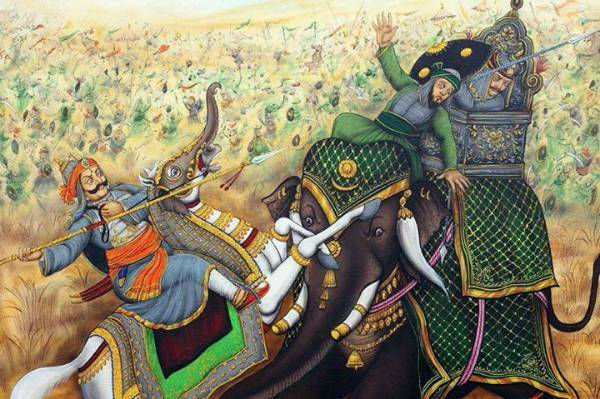It’s a rare thing, bravery. Many claim to be, very few really are. History tells us stories of men and women who transcended boundaries unimaginable, who laid down their lives for a bigger cause, who stood for what was right. Those people are never defeated, no matter the result of the fight. They remain immortal because of the courage they showed.
This story is set in the time the Mughals came to our land. A beautiful country with resources unlimited. Who wouldn’t have been attracted to India? They started capturing parts of the country, made alliances with other kings and spread their kingdom deep into the heart of our nation.
Many had accepted the fate of being under their rule. But in an ocean of fear, fed water by the Mughals, he was the small island that disrupted its flow. They tried as hard as they could to make him bow down to the Mughal Empire. But it was an impossible task. The 7-feet 5-inch tall warrior never knelt. He stood tall, really tall. He was the king of Mewar. His name was Maharana Pratap.

Pratap wasn’t up against just any emperor. He faced the mightiest Mughal of them all – Akbar. Or how history remembers him – Akbar the Great.
Akbar had tried persuading Pratap many times to join hands. His own brothers worked for Akbar, along with other Rajput chiefs. But an alliance was out of the question. His forefathers had taught him that, his ideals taught him that. No form of diplomacy would work. He was ready for war, unconcerned by the outcome, not wavered by the force that would be brought down on him if he did not comply with the Mughals.
But again, this is Maharana Pratap we are talking about. His courage and strength knew no bounds. Once an attacker sneaked up on him, but he saw him through the corner of his eye. Pratap literally sliced the man in half. From head to pelvis to horse. One brutal barbarically-fluid motion.

Finally in 1576, the moment arrived. The Battle of Haldighati. Where Akbar’s forces descended upon Pratap’s. The vastness of Akbar’s army knew no bounds. Pratap had less than one-tenth of that number. But in a very 300esque fashion, all his troops were ready to lay down their lives. For them, Mughals were invaders and this was their country.
Such was the impact of his courage that his men were outrageously loyal to him. Like one Jhala Manna, who, during the battle, disguised himself as Pratap by wearing the emblem and royal helmet on the battlefield. Thus, diverting Mughal forces and death towards himself so that Pratap could stay alive.
The tale of Chetak, Maharana Pratap’s horse, is no less inspiring. The blue-eyed horse was heavily wounded, while Pratap was injured too. Chetak carried Pratap to safety by jumping across a canal. Pratap survived, but Chetak died of his wounds. The brave man cried that day and it only intensified his desire for revenge.
Pratap had to retreat to the jungle. The Mughals claimed rule over his soil.

But Pratap did not rest, he did not give up. He vowed to take back what was his. He gave up on wealth and comfort. He had only one goal in mind.
When Akbar busied himself with taking over other parts of the country, Pratap would return to take back what was his. He freed Mewar and reconquered many of his lost territories and built himself a new capital in Chavand.
Pratap used guerrilla warfare to outsmart the mighty Mughals. His inspirational resurgence and war tactics were later used by the likes of Shivaji and also by anti-British troops in Bengal.
But this isn’t just about where and how he ruled. Or what he lost and conquered. It is simply about courage. Courage that defied one of the mightiest emperors in history. For him, glory and danger were present in equal. Regardless of the outcome, he decided to fight. His valour and soul forever remained unconquerable. He was the bravest Rajput of them all. No one could deny it, not even the Mughals. He was Maharana Pratap.

“All is unstable in this world. Land and wealth will disappear, but the virtue of a great name lives forever. Pratap abandoned wealth and land, but never bowed his head.”
– Abdul Rahim Khan-e-Khana, part of Akbar’s Navratana

















